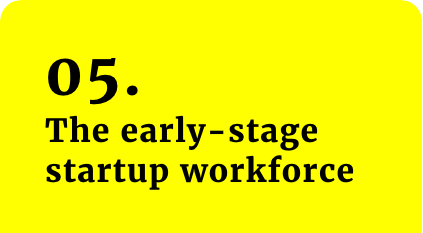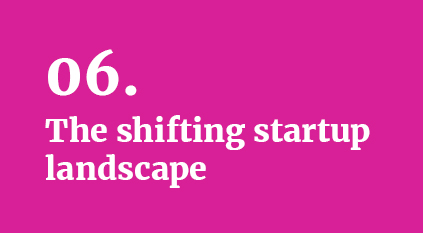2023 was a year that witnessed an extraordinary surge in investments directed towards Generative AI start-ups. However, the surge was predominantly driven by the technology behemoths — overshadowing the stakes traditionally held by venture capital (VC) entities — with the likes of Microsoft, Google, and Amazon at the vanguard, sealing deals that represented a substantial two-thirds of the staggering $27 billion funnelled into nascent AI enterprises in 2023.
The economic climate, rife with heightened interest rates and a downturn in valuations, necessitated a more cautious capital allocation, meaning that even the most seasoned venture capitalists found themselves outpaced. This consolidation has led to an AI market that is based upon a select few foundational models, models which now are now essentially cornerstones of the industry as a whole.
Which is why the wider tech community looked on with a mixture of horror and bemusement last year as uncertainty rocked the world’s most well-known generative AI OpenAI, as the company underwent a power struggle which led to the departure and subsequent return of CEO Sam Altman. The drama led to unease throughout the ecosystem, with 54% of tech leaders reporting greater risks associated with using OpenAI products, with 35% of founders reporting uncertainty about using OpenAI tech going forward.
Despite being something of a revolution in how this technology could and would be applied — we actually designed our own to help users learn how to prompt better — the update cast a long shadow across the startup ecosystem. Already prior to GPTs, other Generative AI companies were feeling the burn thanks to OpenAI’s never ending expansion. Jasper AI, an early pioneer in generative AI SaaS applications for instance, cut its internal valuation by 20% (from $1.5 to $1.2 billion) amid slowing growth in September.
So when it came to the launch of GPTs, many pundits were quick to announce that OpenAI had condemned the remaining Generative AI startups to extinction. The situation caused a palpable undercurrent of apprehension amidst GenAI entrepreneurs – a worry that the titanic strides made by giants like OpenAI would continue to eclipse the innovations of smaller, nascent startups. But was this pessimism warranted? Are GenAI startups dead men walking?
Opportunities Amidst Adversity
First and foremost, let’s look at the startups which were scuppered by this update: PDF readers and video summarisers, SEO checkers and the like. In essence, these ‘startups’ were little more than OpenAI applications in waiting — gaps that would inevitably be filled in natively anyway. We’ve seen this before when third party zip files software and third party spell checker companies were absorbed by Microsoft. In 2024, the main players will begin to bundle their GenAI offerings in order to further cement control of the ecosystem — the key is to create your own.
As with any startup, any Generative AI startup needs to have a moat built around it. Fortunately, there’s plenty of room to do just that, because no matter how integrated they get, there will always be room for alternatives since AI is such a massive concept. OpenAI can’t build every feature into its platform — and the recent attempted ousting of the more commercially driven employees suggests that this may not even be the companies MO for the time being anyway — so a company that does one thing differently will always have a place in the wider ecosystem (just probably not at the centre of the stage). When viewed this way, it is clear the current landscape presents a myriad of opportunities ripe for the taking. The key lies in strategic positioning and innovation.
Building a Moat
One of the most potent strategies for GenAI startups is to carve out niche areas that are either overlooked or inadequately addressed by larger entities like OpenAI. Specialising in specific industries, regional markets, or unique applications of AI can provide a competitive edge. For example, focusing on bespoke AI solutions for healthcare, education, or regional languages can create significant value that larger, general-purpose models might not offer.
Startups can also focus on developing products or services that complement existing AI platforms. This could include enhanced privacy features, sector-specific customisations, or integration services that streamline the use of AI in specific business processes.
Take for example the Finnish AI company, Silo, who last month released the first results for a multilingual model called Poro (Finnish for reindeer). The model is trained on Finnish and English text, as a proof of concept that high performance LLMs can be built with a mix of different languages, and Silo says that early results show that it’s competitive with Meta’s open source Llama models. The company sits atop a goldmine of data by having access to the EU-funded initiative called The High Performance Language Technologies (HPLT) project that, since 2022, has gathered 7 petabytes (7,000 terabytes) of language data across 80 languages.
So while it’s probably unlikely that a European company is going to build a more powerful English LLM than Google or OpenAI any time soon, such developments are a clear sign that there is scope for companies to explore new markets with different needs.
Carving out a Niche
Other ways in which startups can build a moat is by exploring novel business models that provide a unique position in the market. This might involve offering AI-as-a-Service, subscription models for specialised AI tools, or even crowd-sourced AI development.
Furthermore, utilising and contributing to open-source AI projects can empower startups with more control over their technological development and reduce reliance on proprietary platforms. This approach also fosters community collaboration, which can lead to more innovative and diverse AI applications.
There is also a growing demand for AI solutions that are ethical, transparent, and responsible. Startups that prioritise these values can differentiate themselves and appeal to a market segment that is increasingly conscious of these issues.
On top of this, it is crucial for startups to design applications with portability and interoperability as core principles. Avoiding dependency on a single model type ensures flexibility and resilience. If OpenAI goes the way of the dodo after all the ongoing malarky, you don’t want to find out that you’ve built your castle on top of sand.
Interoperable or Independent
Interoperability enables startups to adapt quickly to new models or changes in existing ones, thereby safeguarding their applications from becoming obsolete or limited by the constraints of a particular AI model. A diversified approach to model utilisation can significantly enhance the robustness and longevity of AI-driven applications.
Ideally, startups will begin to emerge that own the actual infrastructure on which their applications are built. This is not just a matter of control, but also of strategic importance. Building this infrastructure means investing in the core technologies and platforms that underpin their applications. This could involve developing proprietary algorithms, securing robust data storage solutions, or setting up scalable cloud services. Owning the infrastructure empowers startups with greater control over their products, enhances the ability to customise and optimise applications, and reduces dependence on external platforms. It’s a long-term investment that can yield substantial dividends in terms of innovation, scalability, and market competitiveness.
So while there will always be those who think that the bubble is about to burst, I would not be so sure. As we saw last year with the drama at OpenAI, nothing is set in stone in this nascent space. After all, as the saying goes: if it bleeds, you can kill it. Let’s not shut the book on this before we’ve really started.
About the Author:
Elliot Leavy is founder of ACQUAINTED, Europe’s first Generative AI consultancy. ACQUAINTED exists to connect enterprises & brands with cutting-edge Generative AI tools & talent, helping organisations strategise their GenAI adoption journeys from inception to completion and providing business intelligence for the AI age.






















